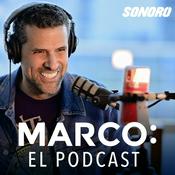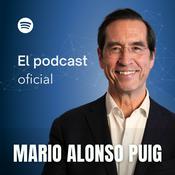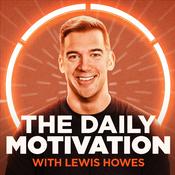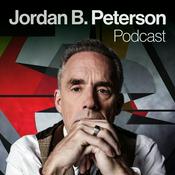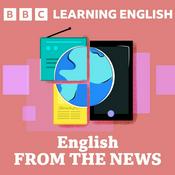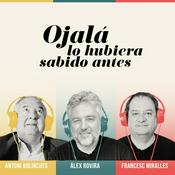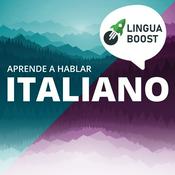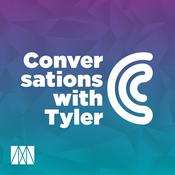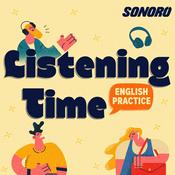The Infectious Science Podcast
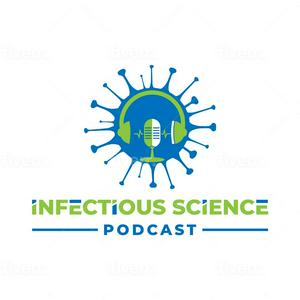
29 episodios

How Generative AI Can Speed Research, Elevate Care, And Keep Humans At The Center
04/12/2025 | 41 min
Send us a textCurious how AI can make healthcare feel more human instead of less? We sit down with medical writer and AI adoption strategist Dr. Núria Negrão, who went from bench science to building practical ways for clinicians, researchers, and communicators to use generative tools without losing accuracy or empathy. From HIV educations roots to today’s most promising AI workflows, we trace what’s working now and where the next breakthroughs may land.We unpack the real bottlenecks: clinicians stuck typing and scientists drowning in papers. Dr. Negrão shows how ambient scribe tools can free clinicians up for face-to-face time with patients, while research copilots can scan literature, connect ideas, and surface the studies that matter. We talk medical education use cases—virtual patients for difficult conversations, culturally sensitive practice, and adaptive learning that meets people where they are. Along the way, we tackle the hard parts: AI hallucinations, bias reinforcement, privacy risks, and the myth that AI is either flawless or useless. The answer is supervision, sourcing, and clear guardrails.Regulation-by-principle anchors our approach: no emotion surveillance, no automated life-and-death allocation, strong data protections, and human override in care. Then we look at the upside for patients. Imagine leaving an appointment with a plain-language summary of what the doctor said, clear next steps, and links to trusted support groups—plus a secure assistant to answer follow-ups when anxiety spikes at midnight. That’s not replacing clinicians; that’s better navigation of the health system. If you want a grounded, hopeful take on AI in healthcare, science communication, and medical writing—one that boosts health literacy and speeds discovery—this conversation is for you.If this sparked ideas, subscribe, share it with a friend, and leave a review. Tell us what you want to hear next so we can keep building tools and stories that serve real people.Thanks for listening to the Infectious Science Podcast. Be sure to visit infectiousscience.org to join the conversation, access the show notes, and don’t forget to sign up for our newsletter to receive our free materials. We hope you enjoyed this new episode of Infectious Science, and if you did, please leave us a review on Apple Podcasts and Spotify. Please share this episode with others who may be interested in this topic! Also, please don’t hesitate to ask questions or tell us which topics you want us to cover in future episodes. To get in touch, drop us a line in the comment section or send us a message on social media. Instagram @InfectscipodFacebook Infectious Science PodcastSee you next time for a new episode!

Climate Change and the Rise and Spread of Pathogens
06/11/2025 | 55 min
Send us a textThe climate isn’t just warming—it’s reorganizing the rules of biology. We explore how rising temperatures, deforestation, wildfire smoke, and thawing permafrost are reshaping the risk landscape for malaria parasites, heat-trained fungi, spillover-prone viruses, and resilient bacteria. From Kenyan highlands that became friendlier to Anopheles mosquitoes, to urban heat islands that may condition fungi to tolerate our body temperature, to the sobering lesson of Siberia’s anthrax outbreak after unusual warmth, we connect data points to the lived reality of health systems on the front lines.We dive into malaria’s life cycle and why vector capacity accelerates in warmer, deforested microclimates. We examine fungal threats, including how wildfire smoke can disperse spores, and why limited antifungal options raise the stakes. On viruses, we unpack Ebola’s reservoir ecology, the role of habitat loss and food insecurity in human–animal interfaces, and how language and stigma can undermine outbreak response. Finally, we look at bacterial risks within permafrost feedback loops and across water and food systems, where floods, droughts, and soil microbiome shifts threaten safety and yields.Throughout, we keep solutions in focus: protecting forests and wetlands, cutting fossil fuels and air pollution, building climate-smart surveillance and diagnostics, and communicating with dignity so communities participate in prevention. Climate action is infection prevention—and it starts now. If this conversation sparked new questions or ideas, subscribe, share with a friend, and leave a review to help more people find the show. What solutions can you enact in your life to face the rising threat?Thanks for listening to the Infectious Science Podcast. Be sure to visit infectiousscience.org to join the conversation, access the show notes, and don’t forget to sign up for our newsletter to receive our free materials. We hope you enjoyed this new episode of Infectious Science, and if you did, please leave us a review on Apple Podcasts and Spotify. Please share this episode with others who may be interested in this topic! Also, please don’t hesitate to ask questions or tell us which topics you want us to cover in future episodes. To get in touch, drop us a line in the comment section or send us a message on social media. Instagram @InfectscipodFacebook Infectious Science PodcastSee you next time for a new episode!

Botulism: Medicine, Menace, and a Masterclass in Food Safety
10/10/2025 | 24 min
Send us a textImagine a toxin so potent that a few nanograms can shut down a muscle—and yet, in the right hands, it eases migraines and calms spasms. We take you from the sausage-linked origins of botulism to the science of spores, food safety, infant risks, wound contamination, and the carefully controlled medical use of botulinum toxin. Along the way, we unpack how this anaerobic bacterium survives heat, why improperly canned foods can become dangerous, and what really happens at the neuromuscular junction when acetylcholine release is blocked.We break down the top-down pattern of paralysis—double vision, drooping eyelids, trouble swallowing—and why sensation stays intact even as movement fades. You’ll hear practical prevention tips for home canning and fermentation, the reason honey is off-limits for infants, and what to do if you suspect exposure. We also explore diagnosis and treatment: toxin detection, antitoxin for adults, immune globulin for infants, and the crucial role of timely supportive care when breathing muscles weaken.Then we shift to the paradox of Botox. Type A botulinum toxin is FDA-approved and widely used for migraines, dystonias, overactive bladder, and cosmetic goals, yet outcomes depend on expertise, dosing, and aftercare. We discuss diffusion risks, emerging research on toxin migration in animal models, and how to choose trained, licensed providers. Rounding out the story, we touch on botulism’s biosecurity history and why strong surveillance and sound public health systems matter just as much as good kitchen habits.If this exploration helped you see botulism with fresh eyes, subscribe for more science you can use, share the episode with a friend who loves microbiology and medicine, and leave a quick review to help others find the show.Thanks for listening to the Infectious Science Podcast. Be sure to visit infectiousscience.org to join the conversation, access the show notes, and don’t forget to sign up for our newsletter to receive our free materials. We hope you enjoyed this new episode of Infectious Science, and if you did, please leave us a review on Apple Podcasts and Spotify. Please share this episode with others who may be interested in this topic! Also, please don’t hesitate to ask questions or tell us which topics you want us to cover in future episodes. To get in touch, drop us a line in the comment section or send us a message on social media. Instagram @InfectscipodFacebook Infectious Science PodcastSee you next time for a new episode!

War & Pathogens, How Combat Drives Contagion
03/9/2025 | 49 min
Send us a textWar is a vector of disease. The battlefield isn't just a place where bullets fly—it's where pathogens thrive and evolve. Throughout human history, war and disease have been inseparable companions, creating perfect storms of contagion that affect soldiers and civilians alike.Our journey begins in the Boer War concentration camps where measles swept through malnourished populations. We explore how the densely packed, unsanitary conditions created an environment where this highly contagious virus could spread with unprecedented severity, even among adults who typically have greater resistance.The trenches of World War I became breeding grounds for tuberculosis—a disease that claimed millions of lives with no effective treatment available beyond isolation, nutrition, and exposure to fresh air and sunlight. It would be decades after the war ended before the first effective medications were developed in the 1940s.War doesn't just spread existing diseases—it creates conditions for new ones to emerge. During World War II, when farming ceased in the occupied Crimean Peninsula, overgrown grasslands became habitats for wildlife and the ticks they carried. When Russian soldiers reclaimed the area in 1944, they encountered what would later be identified as Crimean-Congo hemorrhagic fever. Similarly, the Korean War saw the emergence of Hantavirus among US soldiers.Perhaps most alarming is our exploration of the current Russia-Ukraine conflict, where overstretched medical systems have accelerated antimicrobial resistance to frightening levels. Klebsiella pneumoniae from Ukrainian wounds exhibits carbapenem resistance rates ten times higher than those observed anywhere else in Europe. These resistant strains are already crossing borders, detected in six European countries and as far away as Japan.The displacement of populations, collapse of healthcare infrastructure, and ecological disruptions caused by conflict create ripple effects that extend far beyond the battlefield. As one expert reminds us, perhaps "more effective than any vaccine, is peace."Subscribe, share, and join us next time as we continue exploring the intricate connections between human activity and disease emergence. The more we understand these relationships, the better prepared we'll be to face future health challenges.Thanks for listening to the Infectious Science Podcast. Be sure to visit infectiousscience.org to join the conversation, access the show notes, and don’t forget to sign up for our newsletter to receive our free materials. We hope you enjoyed this new episode of Infectious Science, and if you did, please leave us a review on Apple Podcasts and Spotify. Please share this episode with others who may be interested in this topic! Also, please don’t hesitate to ask questions or tell us which topics you want us to cover in future episodes. To get in touch, drop us a line in the comment section or send us a message on social media. Instagram @InfectscipodFacebook Infectious Science PodcastSee you next time for a new episode!

Beyond the Sequence: People, Pathogens, and Power Dynamics
04/7/2025 | 1 h 13 min
Send us a textThe cutting edge of infectious disease control isn't just about vaccines or treatments—it's increasingly about data. Dr. Stephen Molldrem, Assistant Professor at the Institute for Bioethics and Health Humanities, takes us deep into the world of pathogen genomics and the remarkable ethical questions that emerge when we sequence disease-causing microorganisms.What happens when genetic analysis can potentially reveal who infected whom with HIV? Why do some communities welcome these technologies while others resist them? From the controversies surrounding HIV surveillance in America to the enthusiastic adoption of TB genomics in Botswana, Dr. Molldrem reveals how the same scientific tools can take on dramatically different meanings depending on context, trust, and community involvement.The COVID-19 pandemic accelerated the global adoption of pathogen sequencing, bringing terms like "variants" and "mutations" into everyday conversation. But this technological revolution has also revealed deep inequities—when South African scientists identified the Omicron variant and transparently shared this information, their reward was travel bans rather than support. This pattern reveals how scientific advancement doesn't happen in a vacuum but within complex social and political realities.At the heart of Dr. Molldrem's work is a fundamental reminder: behind every genetic sequence is a person, a community, and a set of lived experiences. As one HIV advocacy slogan puts it, "We are people, not clusters." The challenge for public health isn't just implementing new technologies but doing so in ways that respect human dignity and build rather than undermine trust.Whether you're fascinated by the science of disease tracking, concerned about health privacy, or interested in how new technologies reshape our understanding of outbreaks, this episode offers a thought-provoking journey through the socio-technical landscape of modern infectious disease control. Join us as we explore what happens when cutting-edge science meets complex human realities.Thanks for listening to the Infectious Science Podcast. Be sure to visit infectiousscience.org to join the conversation, access the show notes, and don’t forget to sign up for our newsletter to receive our free materials. We hope you enjoyed this new episode of Infectious Science, and if you did, please leave us a review on Apple Podcasts and Spotify. Please share this episode with others who may be interested in this topic! Also, please don’t hesitate to ask questions or tell us which topics you want us to cover in future episodes. To get in touch, drop us a line in the comment section or send us a message on social media. Instagram @InfectscipodFacebook Infectious Science PodcastSee you next time for a new episode!
Más podcasts de Educación
Podcasts a la moda de Educación
Acerca de The Infectious Science Podcast
Escucha The Infectious Science Podcast, Tu Desarrollo Personal y muchos más podcasts de todo el mundo con la aplicación de radio.net

Descarga la app gratuita: radio.net
- Añadir radios y podcasts a favoritos
- Transmisión por Wi-Fi y Bluetooth
- Carplay & Android Auto compatible
- Muchas otras funciones de la app
Descarga la app gratuita: radio.net
- Añadir radios y podcasts a favoritos
- Transmisión por Wi-Fi y Bluetooth
- Carplay & Android Auto compatible
- Muchas otras funciones de la app


The Infectious Science Podcast
Descarga la app,
Escucha.








